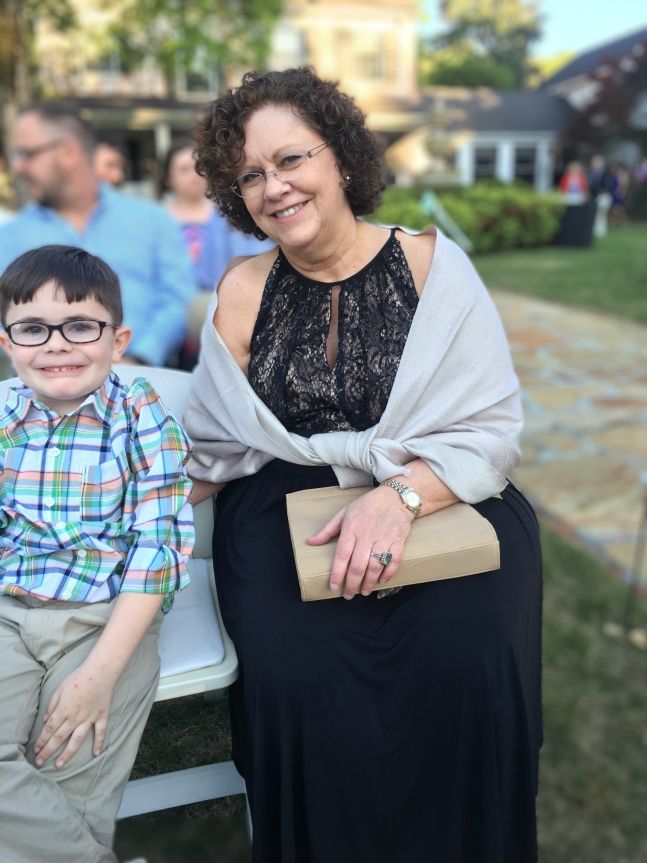St. Jude Family of Websites
Explore our cutting edge research, world-class patient care, career opportunities and more.
St. Jude Children's Research Hospital Home

- Fundraising
Wilms Tumor Treatment
Wilms tumor (WT) is a kidney tumor. It starts from immature kidney cells. No clear cause is known for most children with WT.
Wilms tumor is the fourth most common type of cancer in children. It is the most common type of kidney cancer in children. Children with WT in 1 kidney are usually diagnosed around ages 3-4. Children with WT in both kidneys are usually diagnosed around ages 2-3.
Wilms tumor affects males and females equally. The risk for developing WT is higher in African American children than in Caucasian children. The risk is lower in Asian children.
Learn more about Wilms tumor on the Together by St. Jude™ online resource.
Treatment of Wilms tumor
Wilms tumor treatment will depend on your child’s age and how much the disease has spread.
Treatments can include:

"Having Wilms tumor and getting treatment wasn't all bad. It was only bad for a while."
Wilms tumor clinical trials
St. Jude offers clinical trials and cancer research studies for children, teens, and young adults with Wilms tumors and other solid tumors.
Study goal:
The main goal of this study is to test new experimental drugs in hopes of finding a treatment that may work against tumors that have come back or that have not responded to standard therapy in children, adolescents and young adults.
Age:
12 months to 30 years old
Study goal:
The main purpose of 3CAR is to find out if this type of immunotherapy is safe for pediatric patients with solid tumors. We also want to learn if it is effective in fighting solid tumors.
Age:
Up to 21 years old
Study goal:
The main purpose of this study is to find out how well the medicine tegavivint works to help children, teens, and young adults with certain recurrent or refractory solid tumors.
Age:
12 months to 30 years
Study goal:
The main goal of this study is to find out if proton therapy causes fewer long-term side effects in patients with Wilms tumor than standard radiation treatment.
Study goal:
To find out whether repotrectinib is safe to use in children and young adults and whether it might work against tumors.
Age:
Up to 25 years old
Wilms tumor care at St. Jude
St. Jude provides the highest quality of care for patients with Wilms tumors:
- St. Jude has extensive experience treating children with Wilms tumors in 1 or both kidneys.
- Nearly 20% (1 in 5) children in the United States with Wilms tumor in both kidneys have their surgery done at St. Jude.
- Our surgeons pioneered a way to remove the malignant tumor when the Wilms tumor is in both kidneys. This approach, called nephron-sparing surgery, helps surgeons save healthy kidney tissue. Survival rates are excellent. The surgery also helps children avoid kidney failure, dialysis, and kidney transplant.
- Our doctors and researchers take part in many cooperative trials through the Children’s Oncology Group and other organizations. These trials are focused on improving Wilms tumor treatments and therapies.
- Our doctors and researchers also work together on clinical trials that are exclusive to St. Jude.
- Overall outcomes of Wilms tumor treatments and therapies at St. Jude are quite good. Each has improved significantly in the last 50 years.
- The current treatment for Wilms tumor limits therapy and its side effects for patients who are at a low risk of the tumor coming back. Therapy is increased for patients who are at high risk for the tumor returning. It is also increased for children whose tumors look a specific way when viewed under a microscope (anaplastic histology).
- In the lab, scientists are trying to identify tumors that are likely to resist therapy. Researchers are trying to identify genes connected with poor outcomes and tumors returning. These findings help your child’s team determine what therapy is best.
More reasons to choose St. Jude for care include:
We are consistently ranked among the best childhood cancer centers in the nation by US News & World Report.
At St. Jude, we have created an environment where children can be children and families can be together.
We lead more clinical trials for childhood cancer than any other hospital in the U.S.
St. Jude is the only National Cancer Institute–designated Comprehensive Cancer Center just for children. A Comprehensive Cancer Center meets rigorous standards for research that develops new and better approaches to prevent, diagnose, and treat cancer.
The nurse-to-patient ratio at St. Jude is about 1:3 in hematology and oncology and 1:1 in the Intensive Care Unit.
Patients may be able to get expert, compassionate care and treatment closer to their homes through the St. Jude Affiliate Program.

Seeking treatment at St. Jude
Patients accepted to St. Jude must have a disease we treat and must be referred by a physician or other qualified medical professional. We accept most patients based on their ability to enroll in an open clinical trial.
Call: 1-888-226-4343 (toll-free) or 901-595-4055 (local) | Fax: 901-595-4011 | Email: referralinfo@stjude.org | 24-hour pager: 1-800-349-4334